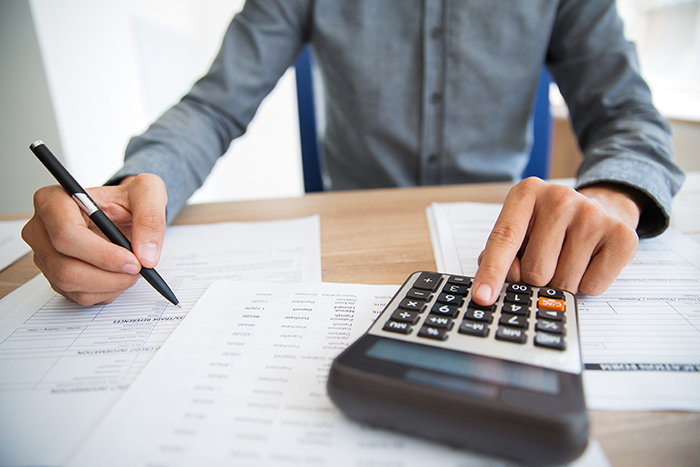Tax season in Australia can be a stressful time for many people. Knowing what to declare and what you can claim can be tricky, but when you file your tax return online, through a registered online tax agent like Personal Tax Specialists, it doesn’t have to be.
We can make the process smooth and convenient for you. From our years of experience doing this, we’ve put together these 10 tips to help you prepare for tax season and alleviate some of that stress.
1. Gather all your documents in one place
To avoid ransacking your house at each step of the process, start by gathering all of the necessary documents you will need to file your return this tax season in Australia. These documents may include your PAYG statement, travel log, bank statements, receipts for work-related expenses, sources of other assessable income (like rental income), and other expenses.
2. Gather important numbers
To lodge your personal tax return this tax season you’ll need your tax file number (TFN) and bank account details. Make sure your bank details are correct and up to date to avoid any issues with your refund.
3. List all work-related expenses
If you are claiming work-related expenses, it’s important that you’ve kept track of them throughout the year and have records to show. You can do this by keeping a logbook or by keeping all of your receipts in a dedicated folder. Make sure you have all the necessary documentation to claim the deductions you are entitled to. For more on work-related expenses, download our WFH tax deduction cheat sheet for the 2022/23 tax season in Australia.
4. Claim your tax credits or deductions
There are a variety of tax credits and deductions available in Australia, so make sure you understand which ones you may be eligible for. Some common deductions include work-related expenses, charitable donations, and medical expenses, so make sure you don’t miss out this tax season in Australia.
5. Decide how you'll lodge your tax return
There are a few different options for lodging your tax return in Australia. You can use the ATO’s online lodgment service, a registered online tax preparation service like Personal Tax Specialists, or if you prefer to lodge a paper tax return, you can download the form from the ATO website and send it by mail to the ATO.
6. Seek help from experts

If you are unsure about any aspect of your tax return, don’t hesitate to seek help from a tax professional. They can help you understand what you need to do to prepare and lodge your tax return correctly, and can also provide advice on tax credits and deductions you may be eligible for.
In most cases it’s beneficial for you to rely on tax preparation services. They can help you avoid errors and claim deductions you may not even be aware of this tax season in Australia.
7. Lodge, even if you don’t need to
Remember that you need to lodge a tax return even if you don’t think you owe any tax. You may still be eligible for refunds or other benefits, so it’s important to lodge your return on time.
8. Check for errors
Double-check your tax return for any errors or omissions before lodging it. Any mistakes can lead to issues with your return and potentially put you in the eyes of the ATO for an audit.
If you don’t have the time or expertise to prepare your own tax return, consider using a tax preparation service. They can help you navigate the complexities of the tax system and ensure your return is filed accurately and on time.
9. Keep your records up-to-date throughout the year
Tax season in Australia is already a busy time so don’t wait until the last minute to start organizing your records. Keep them up-to-date throughout the year to make tax season a breeze. Create a folder online to store your tax information throughout the year.
10. Make note of important deadlines in your calendar
Know when your personal tax return is due, as well as any other important deadlines related to tax season in Australia. Mark these dates in your calendar so you don’t forget them. Tax season in Australia is from 1 July to 31 October each year. If you work with a registered tax agent you can extend this deadline.

FAQs
What do I need to prepare for my tax return Australia?
To prepare for your tax return in Australia, you will need to gather the necessary documents and information to accurately report your income and claim any deductions or credits you may be eligible for. Here are some of the key items you’ll need:
- Tax File Number (TFN): You will need your TFN to lodge your tax return.
- Income details: Details of all income you received during the financial year, including your salary or wages, any government payments, and income from investments or rental properties.
- PAYG Payment Summary: Your employer will provide you with a PAYG payment summary (previously known as a group certificate) that shows how much you earned and how much tax was withheld from your pay.
- Bank statements: You may need to provide bank statements to show interest earned or other financial transactions.
- Deductions: If you plan to claim work-related expenses or other deductions, you will need to keep receipts and documentation to support these claims.
- Private health insurance: If you have private health insurance, you will need your annual statement from your insurer.
- Superannuation: You will need to provide details of any contributions made to your superannuation fund.
- Investment income: If you have any investment income, such as dividends or capital gains, you will need details of these transactions.
- Rental properties: If you own rental properties, you will need details of the income earned and expenses incurred, including mortgage interest, repairs and maintenance, and property management fees.
- Other information: You may also need to provide details of other financial transactions, such as overseas income, business income, or capital gains from the sale of assets.
What do I need to prepare for my tax appointment?
When you choose to lodge your tax return online with Personal Tax Specialists this tax season in Australia, you don’t even have to schedule an appointment with an online tax agent.
Instead, you can get started by using our 5 step lodging process from the comfort of your home or anywhere you are.
Do you need pay slips for tax return?
Yes, you need your pay slips or income statements to complete your tax return in Australia.
How much tax do I pay Australia?
The amount of tax you pay in Australia depends on several factors, including your income, tax deductions, and tax credits. Australia uses a progressive tax system, which means that the more you earn, the higher the percentage of tax you pay.
For the 2021-2022 financial years, the tax rates for Australian residents are as follows:
- 0% tax on the first $18,200 of taxable income
- 19% tax on income between $18,201 and $45,000
- 32.5% tax on income between $45,001 and $120,000
- 37% tax on income between $120,001 and $180,000
- 45% tax on income over $180,000
It’s important to note that these rates apply to your taxable income, which is your income after deductions have been taken into account. Some deductions that may be available to you include work-related expenses, charitable donations, and personal superannuation contributions.
The Australian tax system includes a Medicare Levy of 2% of your taxable income, which goes towards funding the country’s public healthcare system. If you earn over a certain threshold and do not have private health insurance, you may also be subject to the Medicare Levy Surcharge.
For more on tax brackets read our blog called, Latest Changes To The Australian Tax Brackets [2023].
How do I file my tax return from overseas? Australian Tax Brackets For 2023
If you’re an Australian resident for tax purposes living overseas and earning an income, you still need to file an Australian tax return. Read our blog on how to file your tax return from overseas here.
Make tax season a breeze this year
Tax season in Australia doesn’t have to be a daunting experience. Our 5 step process makes lodging your return quick, convenient and stress-free for you.
We’ll help you claim all your deductions, avoid errors and stay compliant with the Australian Tax Office (ATO). Get started now!



